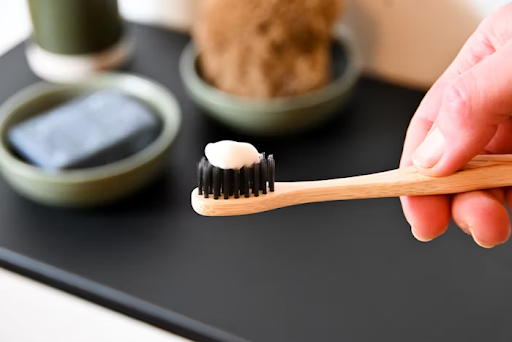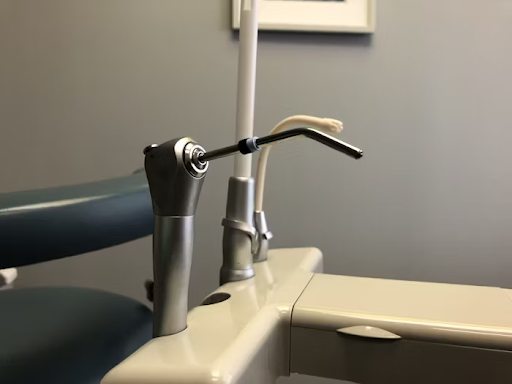We’ve all picked up habits we assume are healthy—brushing right after every meal, skipping floss if our gums bleed, using charcoal toothpaste for that “extra white” glow. But what if these routines, often passed down through family or social media, are doing more harm than good?
As a West Hollywood dentist would tell you, oral health isn’t just about frequency or enthusiasm. It’s about accuracy, consistency, and science-backed methods. In this blog, we’re diving into common myths that continue to circulate—some well-intentioned, some outright dangerous—that could be quietly sabotaging your teeth and gums.
If you’ve ever Googled “dentist near me” after a sudden toothache or sensitivity, you might want to check if one of these myths is to blame.
Myth #1: Brushing Harder Means Cleaning Better
It’s easy to assume that the more pressure you apply, the cleaner your teeth will be. Unfortunately, your enamel and gums don’t agree. Brushing too hard can actually wear down enamel and cause gum recession, which leads to sensitivity and long-term issues like root exposure.
The American Dental Association recommends brushing gently with a soft-bristled toothbrush. A professional dentist in West Hollywood might even advise using an electric toothbrush with a pressure sensor if you’re an aggressive brusher by habit.
Myth #2: If Your Gums Bleed, Stop Flossing
This one is surprisingly common—and completely backward. Many people notice bleeding when they floss and take it as a sign to stop. But in reality, the bleeding often indicates inflammation due to a buildup of plaque and bacteria in areas that haven’t been cleaned properly.
Regular flossing is key to reducing gum inflammation. Within a week or two of consistent flossing, bleeding typically stops. A West Hollywood dentist would likely explain that skipping floss altogether lets bacteria flourish below the gumline, increasing your risk of gum disease and even tooth loss.
Myth #3: Whitening Toothpaste Is the Best Way to Get a Bright Smile
Whitening toothpastes can be effective to a point, but many rely on abrasive particles to “scrub” away stains. Over time, these abrasives may erode enamel, leaving teeth more vulnerable to damage and ironically, more yellow as the underlying dentin becomes exposed.
If you’re looking for a truly brighter smile, professional whitening treatments under the supervision of a dentist in West Hollywood are safer and more effective. A custom approach minimizes risk while maximizing results.
Myth #4: No Pain Means No Problem
It’s tempting to think your teeth are fine if they don’t hurt—but pain is often the last symptom to show up in oral health issues. Cavities, gum disease, and even infections can progress quietly for months before symptoms become noticeable.
That’s why routine checkups are crucial. A dentist near me search should be part of your yearly planning, not a last-minute reaction. Preventive care saves you pain, time, and money in the long run.
Myth #5: Mouthwash Can Replace Brushing
While mouthwash can be a helpful addition to your routine—especially antibacterial or fluoride varieties—it’s not a substitute for brushing and flossing. Mouthwash doesn’t physically remove plaque, which is why mechanical action (brushing and flossing) remains non-negotiable.
Think of it as a supplement, not a solution. Most West Hollywood dentists recommend using mouthwash after brushing, not instead of it.
Myth #6: Charcoal Toothpaste Is a Natural Miracle
Charcoal toothpaste is marketed as a natural whitening product, but the truth is more complex. There is limited scientific evidence supporting its safety and effectiveness, and concerns have been raised about enamel erosion and increased tooth sensitivity.
Some versions lack fluoride altogether, which is essential for protecting against cavities. A seasoned West Hollywood dentist would caution patients about using products not endorsed by the ADA (American Dental Association) or those that promise dramatic results without clinical backing.
Myth #7: Baby Teeth Don’t Matter That Much
They fall out eventually—so what’s the big deal? Actually, baby teeth play a vital role in speech development, chewing, and guiding permanent teeth into place. Untreated cavities or infections in baby teeth can also affect the health of the underlying adult teeth.
A pediatric dentist in West Hollywood will stress the importance of early oral hygiene habits and regular dental visits from the moment the first tooth appears.
Myth #8: Sugar Is the Only Thing That Causes Cavities
While sugar is a major player, it’s not the only culprit. Cavities are caused by acid-producing bacteria that feed on carbohydrates—not just sugar, but also starches like bread, crackers, and pasta.
Additionally, acidic foods and beverages (like soda, citrus, or even vinegar-based dressings) can weaken enamel, making teeth more susceptible to decay. That’s why many dentists near me will talk not just about what you eat, but how oftenyou snack. Frequent snacking keeps acid levels high throughout the day.

Myth #9: You Should Brush Immediately After Eating
This one surprises a lot of people. After eating acidic foods or drinks, brushing right away can actually damage your enamel, which is temporarily softened by acid exposure. It’s best to wait 30 minutes before brushing to allow your saliva to neutralize the pH in your mouth.
In the meantime, rinsing with water or chewing sugar-free gum can help rebalance your mouth’s environment. A trusted West Hollywood dentist would recommend timing your brushing to protect rather than harm your enamel.
So, What Should You Be Doing Instead?
Here’s what the science and your local dental experts recommend:
- Brush twice daily with a soft-bristled toothbrush
- Floss once a day, even if your gums bleed at first
- Use fluoride toothpaste (and mouthwash, if recommended)
- Visit your dentist in West Hollywood every 6 months
- Don’t fall for trends—always ask a professional before switching products
Oral health isn’t just about aesthetics—it’s about function, confidence, and whole-body health. The more informed you are, the more empowered your choices become.
Final Thoughts
Myths around dental care are persistent because they often sound right. But trusting unverified advice can have long-term consequences for your oral health. A little research—and a visit to a reputable West Hollywood dentist—goes a long way in protecting your smile.
So the next time you hear a new dental hack or shortcut online, pause. Check the facts. And don’t hesitate to search for a dentist near me for guidance rooted in science, not speculation.
Your future self (and your teeth) will thank you.
